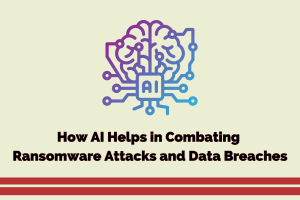Data Governance Frameworks for Enhanced Compliance and Data Security

In the era of data-centric operations, businesses come up with growing challenges in dealing with their data responsibly while adhering to regulatory requirements and retaining robust security measures. A complete data governance services framework plays a critical role in handling such challenging situations, offering a strategic approach to ensure data is accurate, accessible, and protected. This blog explores the essential additives of data governance frameworks and highlights their importance in fostering compliance and improving data protection.
Key Elements of an Effective Data Governance Framework
Policies and Standards
Establishing clear rules is fundamental to any data governance services framework. These policies dictate the regulations for the way data is accessed, utilized, stored, and disposed of. Alternatively, standards ensure uniformity across the business by specifying technical guidelines, including data formatting and security practices.
Roles and Responsibilities
Successful data governance services rely on well-defined roles to ensure accountability and adherence to rules. Key contributors consist of:
- Data Owners: Responsible for ensuring the accuracy, safety, and proper use of their distinctive datasets.
- Records Stewards: Oversee the enforcement of governance protocols and hold compliance across departments.
- IT Specialists: Deal with technical components, keeping databases, and imposing safety frameworks.
Maintaining Data Quality
Quality data and relevant information are crucial for fostering data trust and compliance necessities. Businesses can attain this by setting clear benchmarks, tracking information accuracy, and engaging in routine audits to identify and correct inconsistencies. Regular validation of data sources, maintaining transparency in data processing, and ensuring adherence to regulatory standards further strengthen data integrity. This diligent approach not only ensures compliance but also builds stakeholder confidence, enhancing the overall effectiveness of data-driven decision-making across the organization. By prioritizing these practices, businesses can establish a robust data governance framework that supports sustainable growth.
Adhering to Regulatory Requirements
Data governance services frameworks must address various legal requirements, including GDPR, CCPA, HIPAA, and industry-specific regulations. Compliance includes steps like maintaining detailed records, processing data requests, and performing privacy impact assessments to safeguard sensitive information.
Leveraging Technology and Tools
Businesses must use advanced technology tools to simplify governance strategies. These include metadata control platforms, data catalogs, and security software. Technologies such as AI-powered analytics further extend solid support for compliance and improve the potential to detect risks and threats.
Strengthening Data Security Through Governance
A robust data governance services framework is essential in safeguarding and protecting sensitive information in opposition to protection threats. By imposing rule-based policies and practices, businesses can ensure that data security is prioritized at every level.
Role-Based Access Control
Data governance frameworks implement strict access to data controls and make sure that only authorized persons access sensitive data. Using role-based access management (RBAC), employees are granted permissions aligned with their tasks, minimizing the threat of unauthorized access.
Regular Security Assessments
Routine audits and vulnerability assessments are vital in maintaining a secure data environment. These evaluations assist businesses in recognizing weaknesses in their structures and strategies, allowing them to take proactive measures before threats materialize.
Data Classification
Classifying data in line with its sensitivity enables businesses to become aware of high-priority regions that require improved security measures. For instance, private and financial data can be tagged as excessive risk, ensuring they may be dealt with with stronger encryption and monitoring protocols.
Incident Response Protocols
Preparedness is important for addressing data breaches. Governance frameworks include reaction plans to quickly identify, determine, and mitigate any incidents. By outlining clear steps, businesses can minimize damage and ensure well-timed communication with stakeholders.
Conclusion
A robust data governance services framework is crucial for attaining compliance and data protection targets. By enforcing well-designed data rules, using progressive tools, and promoting accountability throughout the organization, businesses can shield their critical data assets while adhering to regulatory necessities. As technology strengthens, retaining and enhancing governance frameworks will be vital for a long-term increase in brand trust and data resilience.






